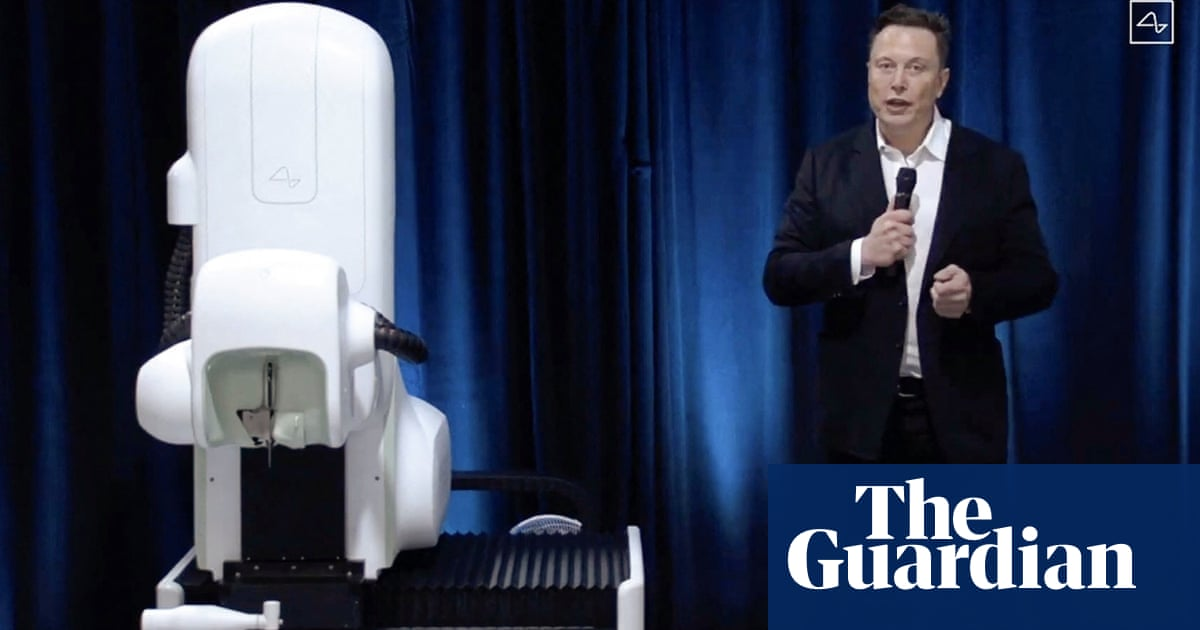- cross-posted to:
- news@hexbear.net
- cross-posted to:
- news@hexbear.net
Company is seeking people with paralysis to test its experimental device after getting green light from independent review board
Elon Musk’s brain-implant startup, Neuralink, said it has received approval from an independent review board to begin recruiting patients for its first human trial. The company is seeking people with paralysis to test its experimental device in a six-year study.
Neuralink is one of several companies developing a brain-computer interface (BCI) that can collect and analyze brain signals. But its billionaire executive’s bombastic promotion of the company, including promises to develop an all-encompassing brain computer to help humans keep up with artificial intelligence, has attracted skepticism and raised ethical concerns among neuroscientists and other experts.
Last year, the Food and Drug Administration denied the company’s request to fast-track human trials, but in May approved Neuralink for an investigational device exemption (IDE) that allows a device to be used for clinical studies. The agency has not disclosed how its initial concerns were resolved.



https://www.pcrm.org/ethical-science/animals-in-medical-research/pcrm-response-neuralink-claims
From the article posted in anothers comment:
If people haven’t figured out how to mitigate rejection of implants to at least 99% they shouldn’t even be attempting this kind of nonsense.